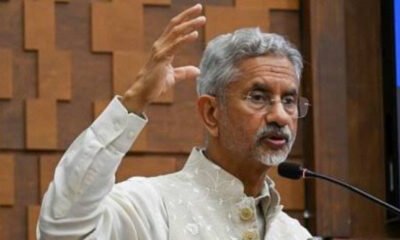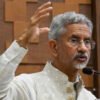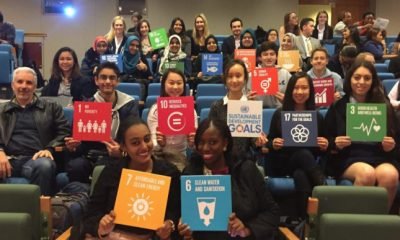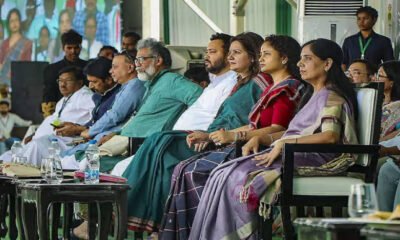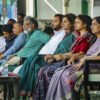Politics
Women and Pandemic
Kanksshi Agarwal.
The NETRI Foundation hosted an Online Conclave, “Women and Pandemic” on 11th April in light of growing concerns over COVID 19 and its impact on women.
The conclave aimed to address few of many pressing issues women faced with; gendered impacts of the crisis from lockdown to migrant workers, challenges faced by them at the forefront of response systems, the lopsided burden of care and the much-needed intervention of women leaders in public health infrastructure. Over 70 people participated in the discussion.
The panel consisted of
Dr Ruha Shadab, a physician currently pursuing Public Policy at Harvard University engaging with global health and social entrepreneurship, Ritu Jaiswal, Mukhiya, Gram Panchayat Raj Singhwahini in Bihar, and Abhiruchi Chatterjee, Gender and Development Policy Consultant and was moderated by Kanskshi Agarwal, the Founder of Netri Foundation.
Expressing his views on the topic, Dr. Ruha Shadab illustrated the ‘nature vs nurture’ concept in the context of the immune response of different biological sexes. Women at birth are much more equipped in their immune response but years of discrimination, conditioning tips the scale of burden and puts the lives of women at a much higher risk in the face of a pandemic. An example of gender roles translating into the workforce is how women are at the front line of health work. Studies also show that men are at a higher risk of contracting the virus.
Ms Ritu Jaiswal talked about the challenges that under-representation of women brings to tackle the issues of a village. One of the ways Ritu ji tackled cases of domestic violence in her village was providing economic empowerment. Participation of women and representation in decision making rose with the formation of SHGs linked to bank accounts, means to income through employment opportunities via MNREGA and access to safe menstrual hygienic practices. Women in Ritu’s village are striving for self-reliance by producing low-cost masks and actively distributing them to all families. A few lessons can be learnt from how this village’s tackled the critical condition of migrant workers while maintaining the lockdown.
Climate Change: It’s time the human race started dealing with it or perish
Ms Abhiruchi Chatterjee shed light on the UN’s response to the pandemic specifically at the intersection of all the identities women carry and are marginalised at, across ages and economic backgrounds. The vulnerability of women has increased manifold during the pandemic as cases of domestic violence have plummeted while a majority of women usually bear the responsibility of care work, performing nearly 76.2% of the total hours of unpaid household work globally. This is a time to learn from each other’s experiences and practices and invest in social entrepreneurship endeavours.
The fact that most countries that have flattened the curve are all led by women is a testament to a much-needed switch in positions of power, reform core values and reanalyze our developmental policies.
Netri foundation has been able to venture into the states of Uttar Pradesh and Madhya Pradesh, and in the last 6 months it has trained/interacted with over 250 women from 4 districts from the two states with an approach to build knowledge
capacities of the women at the local level of governments at the village and municipalities level.



